Agile Austria 2026: Team Insights between AI, Hypes & Human Factors
As we expand our team step by step, we also want to continue to improve our agile methods. Our team members gathered fresh input on this topic at the Agile Austria Conference 2026.
28.06.2022
written by Danijel Maraž
After a long winter of remote work, spring was on the horizon, so it was time for life to become more lively, including work-life, which always involves learning. However, they say that you learn better in person, so the DevOps team decided to attend the Amazon Web Services summit in Berlin just a few weeks before switching back to a hybrid work regime in the Leoben office. Historical, colourful, and modern Berlin greeted us with sunny weather, some surprise rain clouds, and lots of wind as we descended upon it in mid-May 2022. It was my first experience attending a professional conference that I wholeheartedly enjoyed and gave me valuable industry experience for the future.
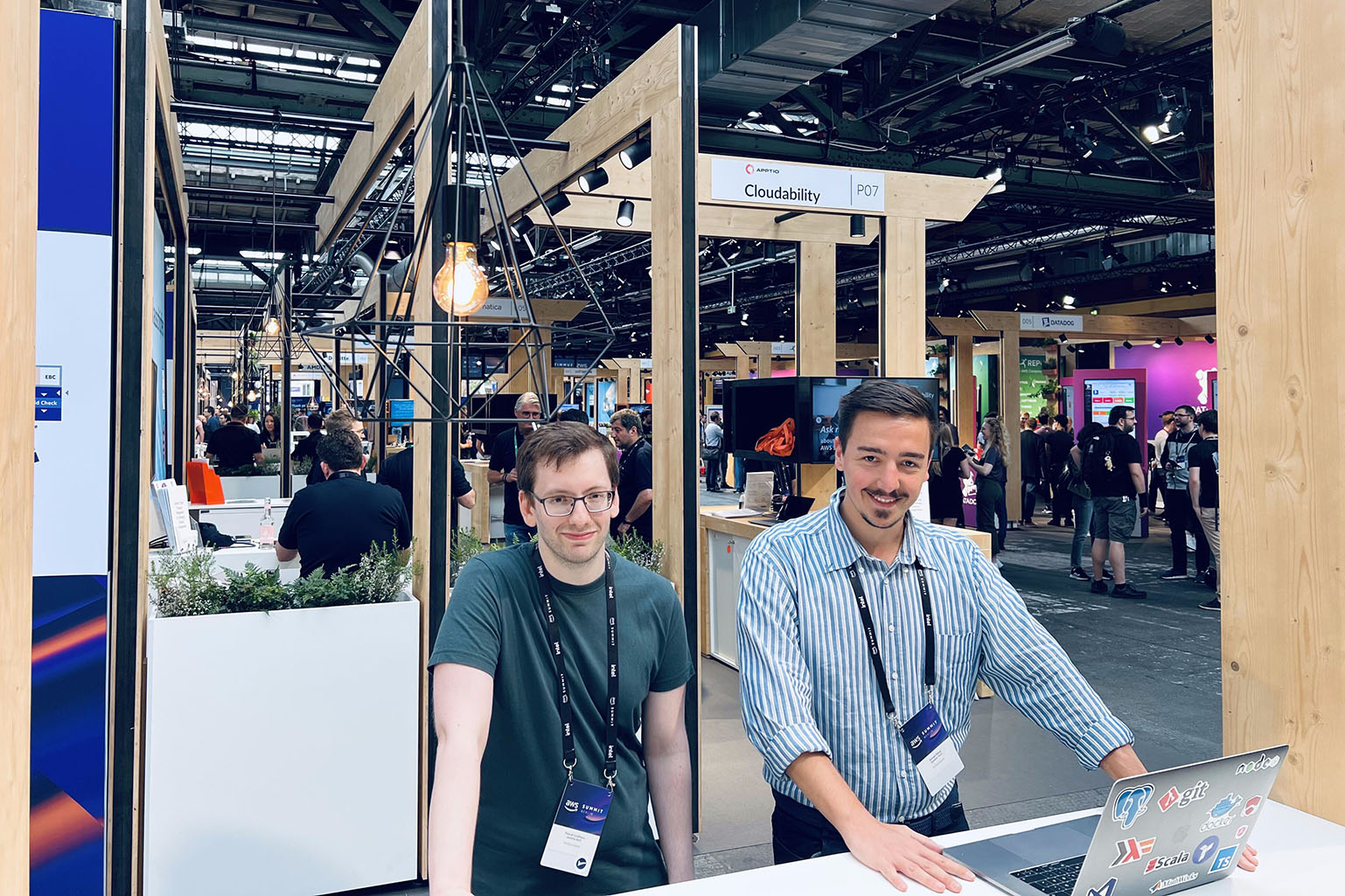
The AURENA Tech DevOps team at the AWS Summit in Berlin
With an entity as big and important as Amazon Web Services, my expectations were relatively high about the professionalism and execution of the conference. I was sure that they would not disappoint and indeed this was plain to see as soon as we entered the venue which was very spacious and ideal containing up to 8 stages where speakers gave lectures about relevant topics of the day. Alongside this, the best and brightest tech companies of the age were omnipresent alongside eccentric individuals who all hoped to grow their business by making new contacts and utilising the latest innovations of AWS and third-party enterprises.
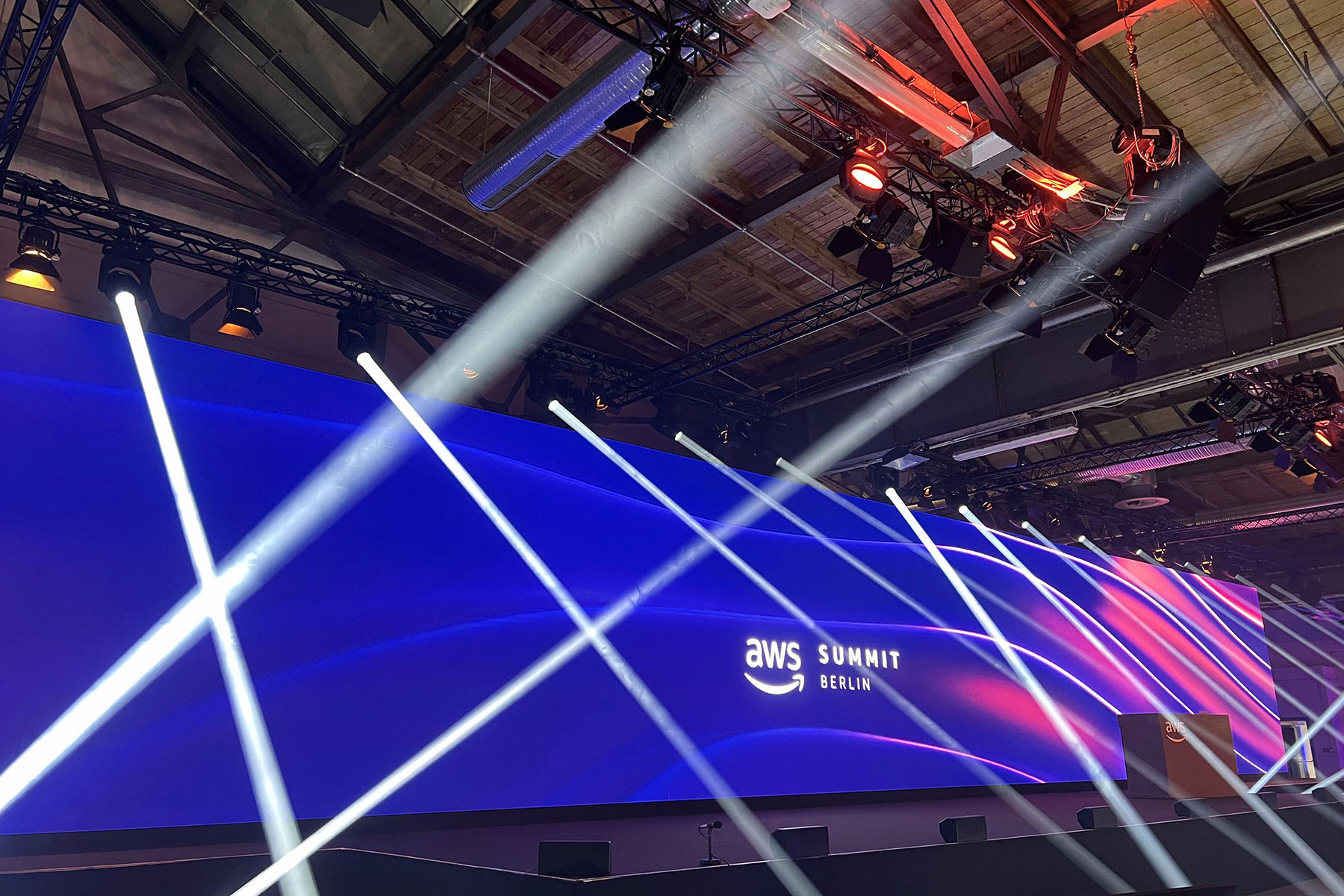
As an observer and sometimes active participant, it was quickly possible to attend a theoretical lecture and then do hands-on work in one of the conference’s hands-on labs to further cement one’s knowledge. Networking and socialising were then enabled and made very easy by the widespread availability of both established company and start-up booths spread throughout the facilities. They were very happy to offer the observer an elevator pitch of their activities along with varying amounts of trinkets and souvenirs. Finally, the mood was made even better by the availability of free food, drink, and beer after a particular hour. I will now write my impressions of some key aspects of the conference.
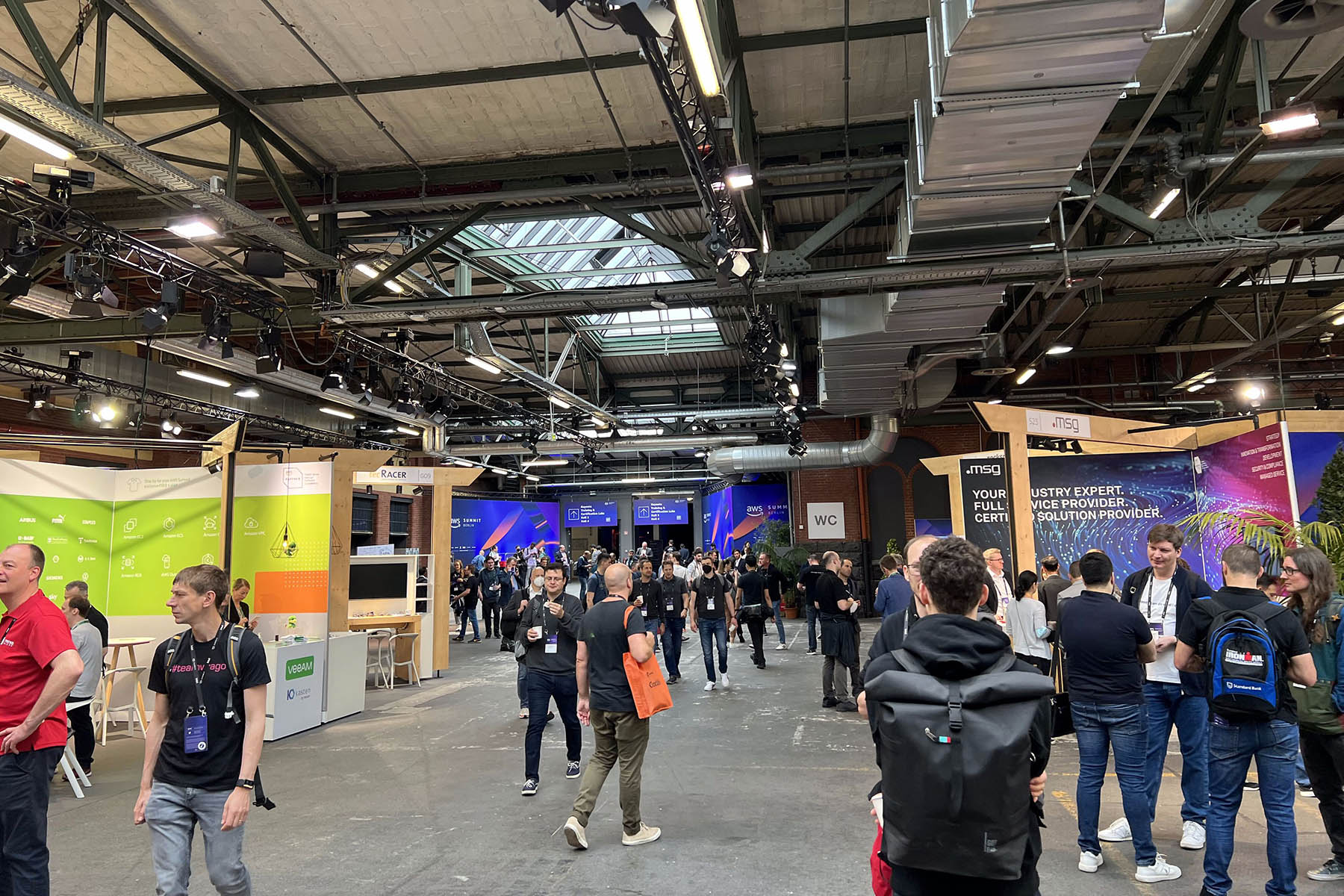
Amazon is recognised worldwide as an innovation leader, and AWS customers often ask, “How does Amazon innovate?” This session introduced us to Amazon’s peculiar innovation culture and its practices. It was centered around four foundational elements: Culture, Mechanisms, Architecture, and Organisation. Many unique aspects were discussed, such as leadership principles, working backwards, their development of a microservices architecture, two-pizza teams, and much more.
I found working backwards particularly fascinating as they mentioned that when designing a product, they like first to create a news article of what the media would be saying about the product 5 years after its release. From this, they can better gauge what they should focus on and tend to re-iterate the article up to 50 times until they are satisfied with the product and its features. Ultimately, we sincerely appreciated how these elements influenced Amazon’s innovation process and took away inspiration and ideas for our unique challenges and goals.
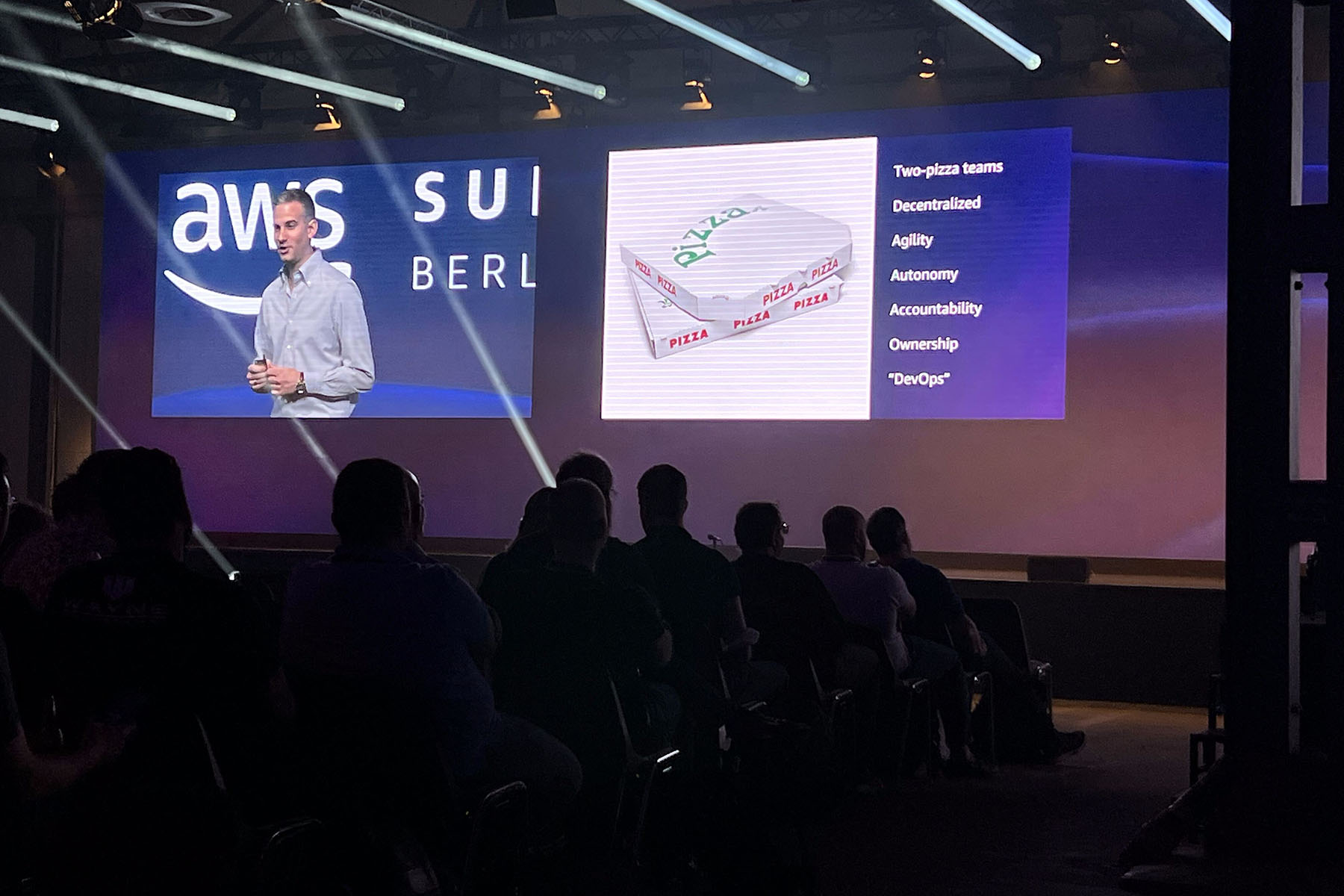
How is technology shaping the future? That was the question the lecture attempted to answer by delving into the latest tech-driven trends around the future of investing, work, and education. In addition, it tried to provide new insights into the future by examining what a day in your life in 2030 could look like. Finally, guidelines were described on preparing one’s organisation for this inevitable future both on the cultural and technological sides. From the former, it represented the widespread use of remote work and offices becoming obsolete due to rising rent prices in the cities, as well as the prevalent use of programming abstractions signified by the term “X as code” from the now widespread infrastructure as code to other newer terms such as security as code. Finally, quantum computing was briefly mentioned as a critical industry disruptor in the future.
The growth of a startup and, with it, the development of the dev team brings a lot of questions and unavoidable decisions. How will growth affect culture? How do you hire the right people? What kind of organisational challenges does the growth bring? The session had three speakers, each with a unique view on hiring quality talent.
Mark Birch (Principal Startup Advocate AWS) stated that it is better to hire sooner rather than later. He pointed out that when your startup becomes a massive success and needs to scale, you will not have the necessary manpower, or you will have to pay dearly for freelance help.
Andreas Schranzhofer, CTO of Scalable Capital, argues that the quality of people beats quantity every time. More can be done with a smaller team of talented individuals, which is in harmony with itself.
Denis Turkov, Senior Director of Architecture of Spryker, shared a lot of insights on employee lifecycle management, arguing that hiring should be a top priority since the average tenure in the IT industry is just two years. You can only get approximately the same amount of time out of quality talent before they supposedly get bored and move. However, this does not hold for all employees; he had a great metaphor to describe this. You have core employees like the tree branches which hold the organisation together, and then you have leaves that fall out at the end of a season, representing employees with shorter stays. He is a proponent of identifying so-called “branch” employees.
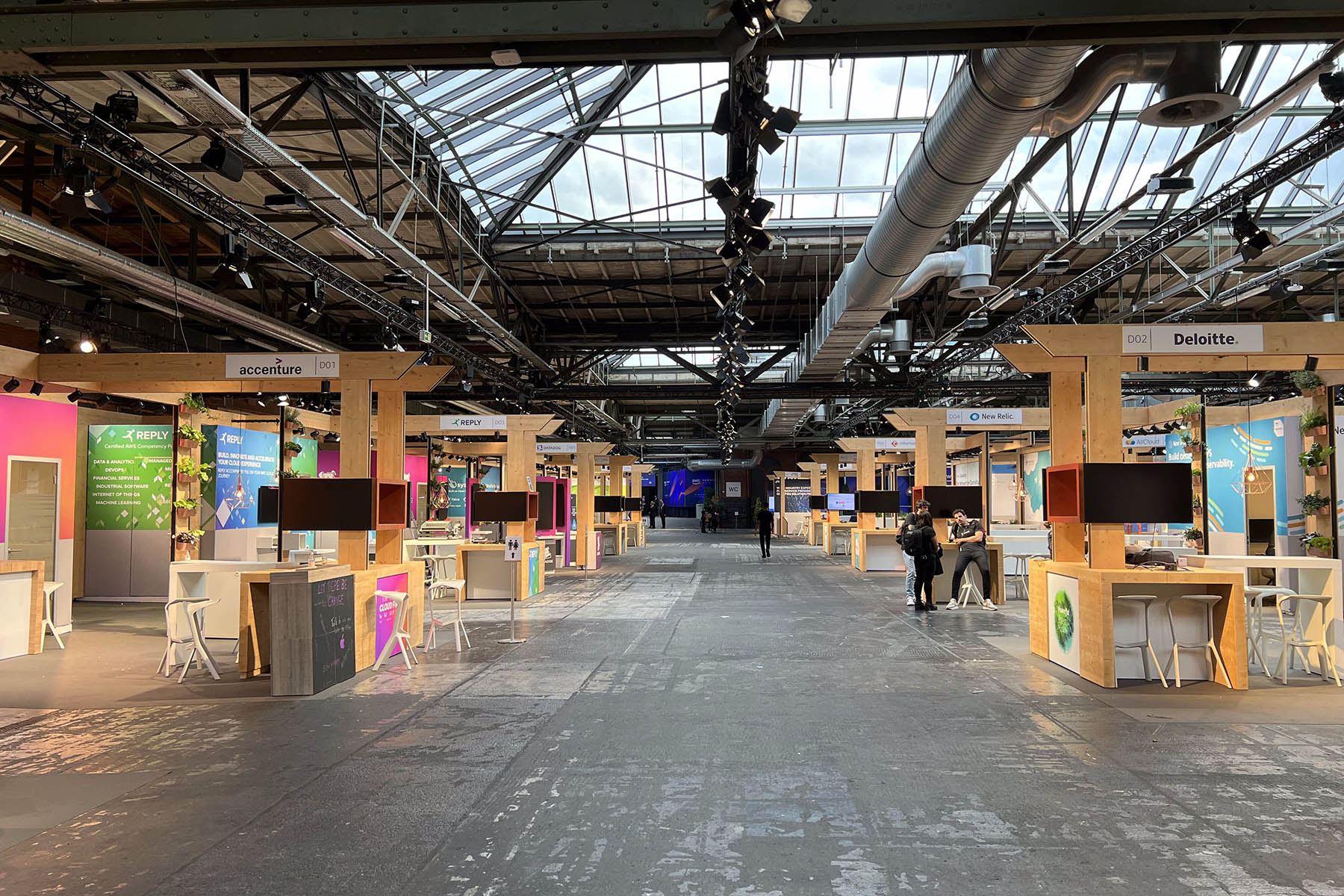
Even though DevOps technology has evolved dramatically over the last few years, there are still many challenges related to the detection of issues related to concurrency, security, and handling of sensitive information. Next Gen DevOps is the shift towards more automation and more proactive mechanisms that enable teams to innovate more quickly and with confidence. The session discussed how development teams could leverage machine learning through Amazon DevOps Guru and Amazon CodeGuru to build their paths toward a more efficient and secure Next Gen DevOps practice.
Data orchestration involves taking siloed data from multiple data storage locations, combining and organising it, and making it available to developers, data engineers, and data scientists. This enables businesses to automate and streamline data-driven decision-making. Apache Airflow is an open-source orchestration tool that allows for the programmatic creation of workflows in Python that help run, schedule, monitor, and manage data engineering pipelines and, in effect, remove the need for cron jobs.
The session looked at the architecture of Apache Airflow and then demonstrated how to create and deploy a typical workflow. The talk was also highly practical, with open source libraries used to create an end-to-end data pipeline. Due to my experience working with data pipelines and large quantities of data, I found the product’s take on the matter quite interesting.
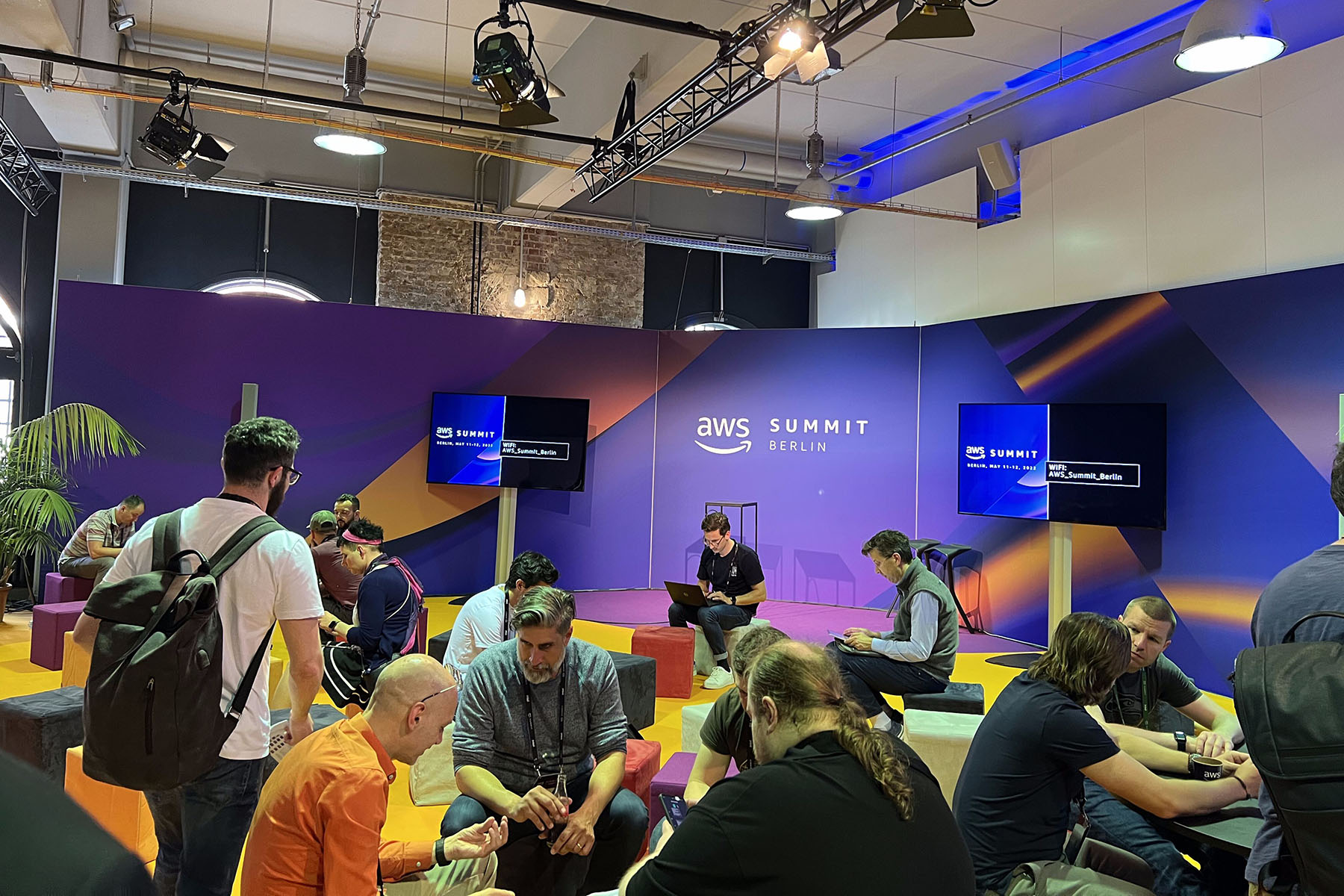
Cloud automation is much more than just eliminating manual steps. It is integral to any software delivery lifecycle and actively influences architecture choices. AWS CDK and serverless computing allow coding an application’s logic and topology side by side in the same language. That is the true meaning of the term Infrastructure as actual Code. We heard about the recent trends in infrastructure automation, debunked some common misconceptions, and were shown how to combine the AWS serverless ecosystem with AWS CDK to rethink application development, deployment, and integration.
My experience in Berlin convinced me of the value of travelling to learn from others. Furthermore, I believe it impacts professional development and forges expertise more concretely than simply reading through literature or watching educational videos. In conclusion, Pascal and I immensely enjoyed our stay in Berlin and hope to attend more conferences soon.
If you are interested in working with us, take a look at our open positions.